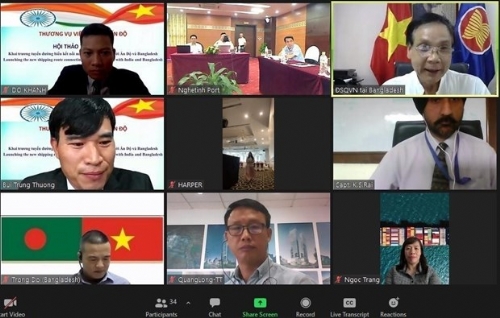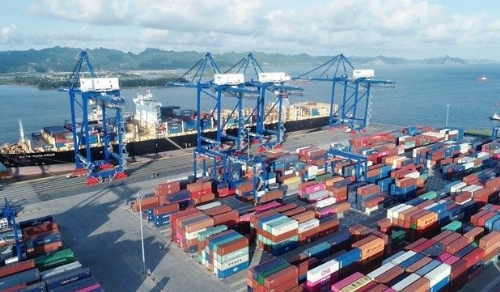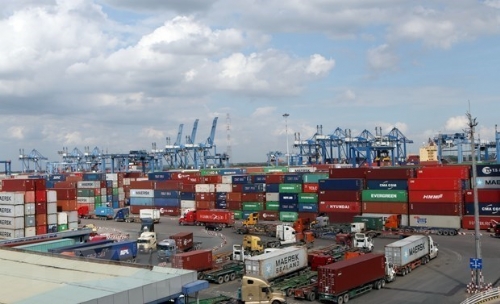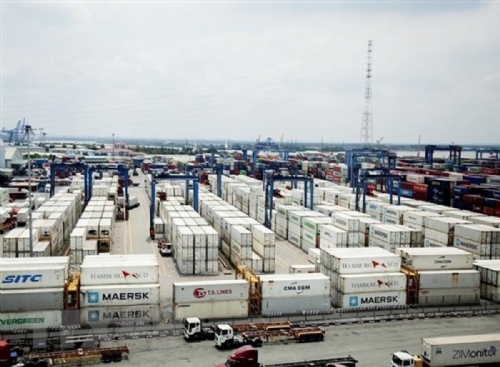Customs prevents origin fraud and protect intellectual property rights
Tuesday, September 17, 2019 10:48
Origin fraud causes damage
The direction of the General Department of Vietnam Customs stems from the reality and the Customs inspection, supervision, post-clearance audit in goods origin, labelling and goods subject to protection of intellectual property rights. The General Department of Vietnam Customs has detected fraudulent methods and tricks in this field.
In addition, countries in the region and the world have changed trade policies towards trade protection such as tax increases and application of technical barriers to protect domestic production. Specially, the US-China trade war has had a great impact on Vietnam's economy. It is forecast that goods from countries subject to high tax rates will illegally transship goods into Vietnam and forge Vietnamese origin and then export these goods to big markets to avoid trade remedies.
According to the General Department of Vietnam Customs, this could lead to Vietnamese export goods being investigated and facing anti-dumping tax, self-defence tax and subsidy tax, causing damage to Vietnamese manufacturers, discredit in the international market or limited exports to these markets. Some items have been subjected to trade remedies such as cold- rolled steel, rolled stainless steel, steel plated with zinc and pressed aluminum.
Closely control and improve law compliance
Facing this situation, complying with the directions of the Ministry of Finance, the General Department of Vietnam Customs has told provincial and municipal customs departments to take strict inspection and supervision measures. These measures aim to improve awareness and capacity to enforce legal provisions on trade remedies, rules of origin, labelling, protection of intellectual property rights and enhance legal compliance of enterprises engaged in import and export activities.
Specifically, the General Department of Vietnam Customs requests municipal and provincial customs departments to inspect and supervise goods origin, labelling and protection of intellectual property rights, illegal transshipment for import and export goods in accordance with the law and closely check procedures.
For imported goods, Customs will not register customs declaration if the customs declarant does not declare the origin of goods in the import declaration.
For the checking of customs dossiers, the General Department of Vietnam Customs has requested units to check contents on goods origin in the import declaration. If the Customs declarant submits C/O according to provisions in Circular 38/2018/TT-BTC, Customs shall implement according to following steps: Check seal or signature on the C/O to determine legitimate seal and signature; check the declaration on quality, specifications, composition, model, sign/code, characteristics and utility of goods on the import declaration to determine the appropriateness this information with documents of customs dossier; check name, description of goods, quantity, HS code, customs value on the Customs declaration with documents in the Customs dossier to determine the origin of goods.
When checking C/O, units must check origin criteria, documents of self-certification of origin, the information of the shipment's journey recorded on C/O, bills of lading and other documents (if any) to ensure imported goods meet direct transport conditions; check and compare contents declared in import customs declarations, documents of customs dossiers with data on imported goods protected by intellectual property rights to detect signs of infringing intellectual property rights.
In physical inspections of goods, the General Department of Vietnam Customs provides detailed guidance on the contents. Officers must check and compare information on origin, labeling in the import declarant with documents in the customs dossier, results of inspection of customs dossier (if any); check the codes and barcodes of imported goods to determine origin, check labelling and information on intellectual property rights on imported goods; compare with data on the system to identify signs of infringement of intellectual property rights; inspect and identify goods as complete or disassembled products of a finished product but declare as raw materials and components.
The General Department of Vietnam Customs instructs provincial and municipal customs departments to handle inspection results when suspect and detect violations in each case; check customs dossier and conduct physical inspection.
For export goods, the General Department of Vietnam Customs requires local customs departments to check the contents on goods origin and labelling on the export declaration. The Customs authority shall allow customs declarants to register customs declaration for exported goods if the customs declarant does not declare information on goods origin, labelling in the box of goods description in the export declaration.
In addition, for cases of customs dossier inspection and physical inspection, the General Department of Vietnam Customs also provide detailed instructions on the contents that need to be checked and processed for inspection results.
To implement customs inspection and supervision measures, proactively detect, prevent and handle frauds, counterfeiting of origin, labeling of goods, infringement of intellectual property rights, illegal transshipment of goods, the General Department of Vietnam Customs also directs the units of Risk Management, Post-clearance Audit, Customs Control to review and collect information of enterprises, commodities with high risk of fraud, propose criteria for channel classification and determine high risk objects to develop inspection plans. They also control the performance of customs operations, develop key plans to conduct patrol and control measures to prevent, detect and arrest smuggling, fraud and forged origin
Source: By Ngọc Linh/Ngoc Loan - Vietnam Customs News
Other news
- Shipping route connecting central Vietnam, India inaugurated(7/29/2022 11:22:05 AM)
- List of seaports of third-class and higher announced(7/18/2022 11:17:01 AM)
- HCM City approves 50% port infrastructure fee cut(7/12/2022 1:59:05 PM)
- Cai Mep port ranked 11th among the world’s most efficient container ports(6/13/2022 3:21:56 PM)
- Cargo throughput via seaports sees modest growth(5/25/2022 1:55:23 PM)
- USAID helps ease congestion at Cat Lai container port(5/23/2022 2:46:53 PM)
- Cua Lo Port receives first international container ship(5/6/2022 11:02:29 AM)
- Cargo through seaports rises 3 percent in four months(5/4/2022 10:40:35 AM)
- Vietnam seeks ways to boost logistics industry(5/4/2022 10:37:17 AM)
- Vietnam's logistics must keep up with international standards(4/26/2022 11:40:15 AM)





